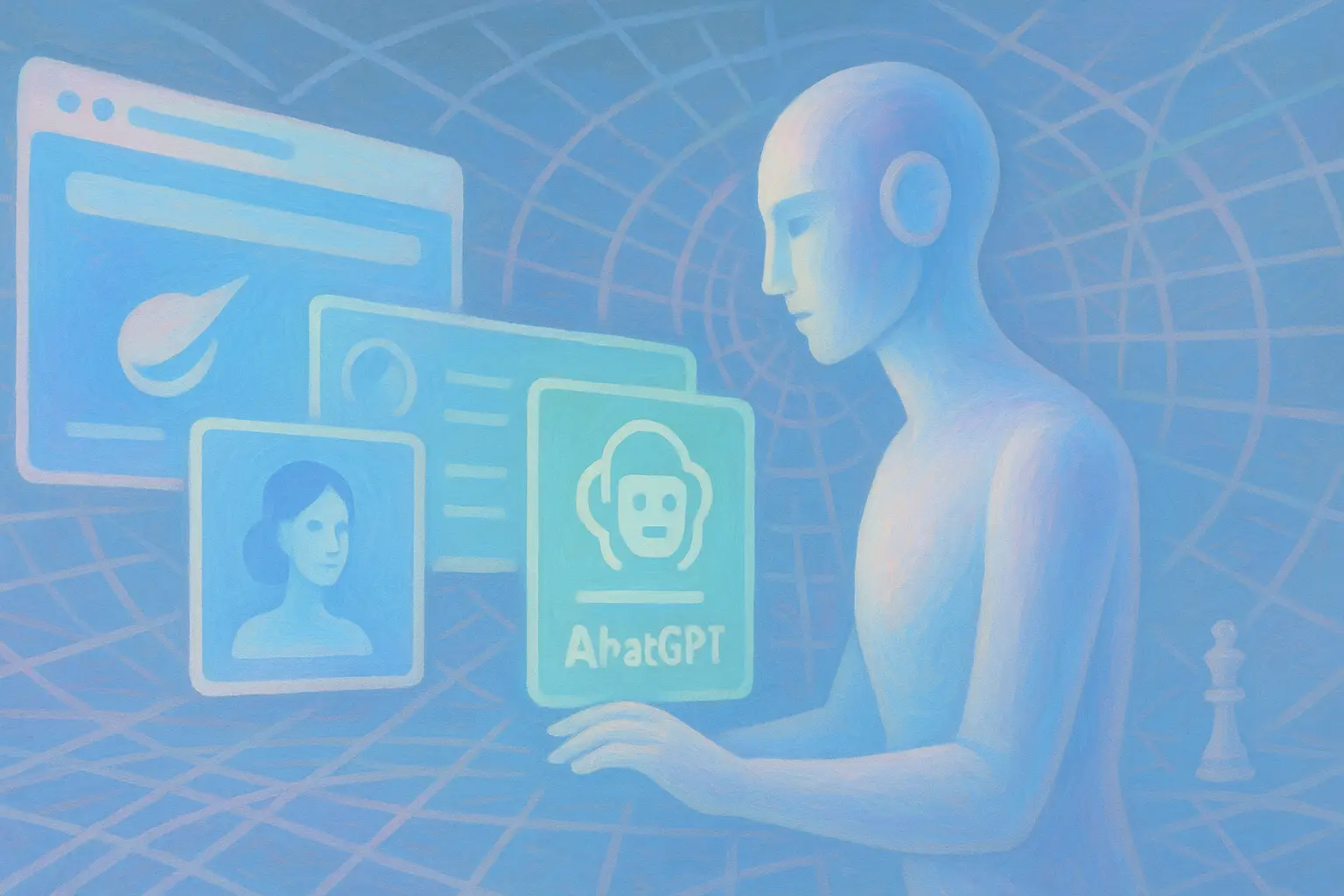
Deepseek AI Privacy & China Data Centers
Introduction
Artificial Intelligence (AI) has become an integral part of our digital world, with companies across the globe developing powerful large language models (LLMs) and AI assistants. One such emerging player is Deepseek AI, a Chinese company known for its cost-effective, high-performance language models. However, increasing scrutiny over its data practices and ties to China has raised significant concerns about user privacy and government surveillance.
If you're using Deepseek AI or considering it for your business, this article will help you understand the privacy risks involved, why experts are concerned, and what alternatives exist.
Generate Veo 3 JSON, Fast
Create structured, optimized JSON for Veo 3 in minutes. Clear fields. Correct syntax. Consistent results.
Open Veo 3 JSON GeneratorWhat is Deepseek AI?
A Quick Background
Deepseek AI, officially known as Hangzhou DeepSeek Artificial Intelligence Basic Technology Research Co., Ltd., was founded in July 2023 in Hangzhou, China. The company is led by Liang Wenfeng, previously associated with the High-Flyer hedge fund. Despite being a relatively new player, Deepseek has rapidly gained popularity due to its affordable AI models, such as:
- DeepSeek-R1 (open-source under MIT license)
- DeepSeek-V3 (latest, high-performing LLM)
Deepseek's models are increasingly compared to OpenAI's GPT-4, particularly due to their low-cost training and high efficiency. Reports suggest Deepseek trained its AI models for around $6 million, whereas OpenAI's GPT-4 cost nearly $100 million. This cost advantage has contributed to its rising global adoption.
Why is Deepseek Gaining Attention?
- Open-source Models – Unlike GPT-4 (which is proprietary), Deepseek's models are available under the MIT license, allowing free use/modification.
- Cost-effectiveness – Businesses and researchers can deploy high-performing AI models at a fraction of GPT-4's price.
- Huge Adoption Rates – Deepseek-powered AI assistants ranked at the top of the US Apple App Store before getting pulled over privacy concerns.
Despite these advantages, Deepseek's connection to China and its data handling practices have raised red flags, especially in the US, Europe, and Australia.
Why Privacy Concerns Exist with Deepseek?
Deepseek AI's data security concerns largely stem from China's strict data laws and regulations that mandate companies to cooperate with government surveillance. Here's why this is a problem:
1. Data Storage in China
Deepseek's privacy policy confirms that user data, including AI interactions, is stored on servers located in China. This raises alarms because under Chinese regulations, authorities potentially have access to company-held data.
2. China's National Intelligence Law (2017)
China's National Intelligence Law, passed in 2017, compels all companies to assist state intelligence operations, meaning:
- Any data stored within China's borders can be accessed by the Chinese government.
- Data can be used for national security investigations without needing user consent.
3. Vulnerabilities Reported in Deepseek's App
Several security researchers have flagged multiple vulnerabilities in Deepseek's AI-powered app, including:
- Weak encryption policies exposing chat histories.
- High risk of man-in-the-middle attacks, allowing data interception.
- Deep data logging such as device fingerprinting, IP tracking, and location storage.
Source: NowSecure's Deepseek Security Analysis
4. GDPR and International Legal Conflicts
China's data storage policies conflict with strict data privacy laws in Europe (GDPR) and Australia's Privacy Act. Countries like Italy have temporarily banned Deepseek AI due to these privacy risks.
For EU users, storing personal data on Chinese servers may violate GDPR regulations, making Deepseek a legally risky choice for businesses.
Comparing Deepseek's Privacy Risks with Other AI Models
To understand where Deepseek stands, here's a comparative table showing privacy and data handling practices across different AI models:
| AI Model | Origin | Data Storage | Government Access Risks | Compliance (GDPR, CCPA) | Encryption & Security |
|---|---|---|---|---|---|
| Deepseek | China | China | High (Chinese National Intelligence Law) | Questionable (GDPR concerns) | Reported Weaknesses |
| GPT-4 (OpenAI) | USA | USA | Low (US-based policies) | Strong (Fully GDPR, CCPA-compliant) | Strong Encryption |
| Claude 3 (Anthropic) | USA | USA | Low | GDPR Compliant | Advanced Privacy Layers |
| Gemini (Google AI) | USA | USA | Low | Fully Compliant | Robust & Encrypted |
| Llama 3 (Meta AI) | USA | USA | Low | GDPR-Compliant Open-Source Model | Secure, Self-Hosted Option |
From the table, it is evident that Deepseek has the highest privacy risks, making it a less desirable option for users concerned about security and data sovereignty.
Are There Safer Alternatives?
If you're looking for AI models that prioritize privacy while maintaining strong performance, here are some alternatives:
1. Perplexity R1
- A modified version of DeepSeek-R1, hosted in US & European data centers.
- Privacy approach: No data stored in China.
- Enterprise Pro users can opt out of AI training data collection.
- Best For: Users who want Deepseek's performance without Chinese data concerns.
Link: Perplexity AI Privacy Policy
2. OpenRouter
- Provides access to multiple AI models via a unified API, including GPT-4, Claude-3, and Llama-3.
- Privacy approach: Users can opt out of logging.
- Best For: Users seeking model variety with flexible privacy settings.
Link: OpenRouter AI
3. Claude 3 (Anthropic)
- Developed by ex-OpenAI researchers, entirely hosted in US data centers.
- Privacy-first AI model with no user data training by default.
- Best For: Business teams needing AI that meets strict privacy standards.
Link: Anthropic Claude AI
Final Thoughts: Should You Use Deepseek AI?
If your top priorities are cost and performance, Deepseek offers an affordable alternative to GPT-4 and Claude-3. However, you should weigh that against the privacy risks, especially if your use case involves sensitive information.
Here's a simple recommendation:
- If data sovereignty and regulatory compliance matter → Avoid Deepseek and choose OpenAI, Anthropic, or Perplexity R1.
- If you must use a Deepseek-based model, opt for** Perplexity-hosted versions** to minimize risks.
- If you are a developer wanting full control, self-hosting an open-source model (e.g., Llama 3) is a strong alternative.
With increasing global scrutiny on AI and data security, choosing models from trusted jurisdictions (US, EU, or GDPR-compliant regions) is often the safest approach.
Frequently Asked Questions (FAQs)
Is Deepseek AI safe to use?
Deepseek is technically safe as an AI language model, but its privacy risks arise from the company's use of Chinese data centers. If you are concerned about government access, you may want to explore alternatives.
Does Deepseek comply with GDPR?
Currently, Deepseek's data storage location (China) conflicts with GDPR regulations, making it questionable for EU customers. Italy has already banned it pending investigation.
What is the best privacy-friendly alternative to Deepseek?
The best strictly privacy-focused alternatives are Claude 3 (Anthropic), GPT-4 (OpenAI), or Llama 3 (Meta), as they have strict encryption policies and US-based data protections.
By staying informed and choosing AI solutions with robust privacy safeguards, you ensure that your sensitive data remains secure—a crucial factor in the growing world of AI-powered applications.
References:
Share this article
Related Articles

ChatGPT Go Free in India: Unlock AI Power 2025!
Explore how OpenAI's ChatGPT Go free offer in India is set to transform AI accessibility, from enhanced features to market impact and strategic benefits.

Atlas vs Comet: AI Browser Battle 2025
Dive deep into the world of AI-native browsers with ChatGPT Atlas and Perplexity Comet. Explore their unique features, philosophies, and the battle that is reshaping how we interact with the web.

ChatGPT Atlas: AI Browser Revolution
Explore how ChatGPT Atlas, OpenAI's groundbreaking AI-powered browser, transforms web browsing with contextual intelligence, personalized automation, and robust privacy controls.
